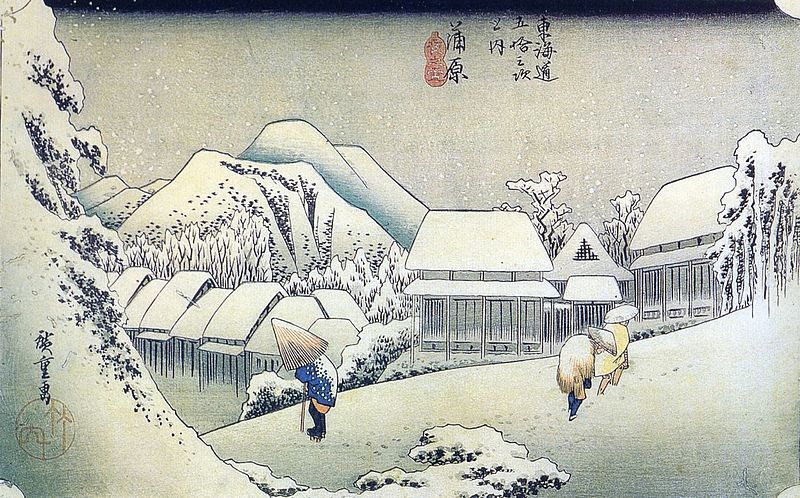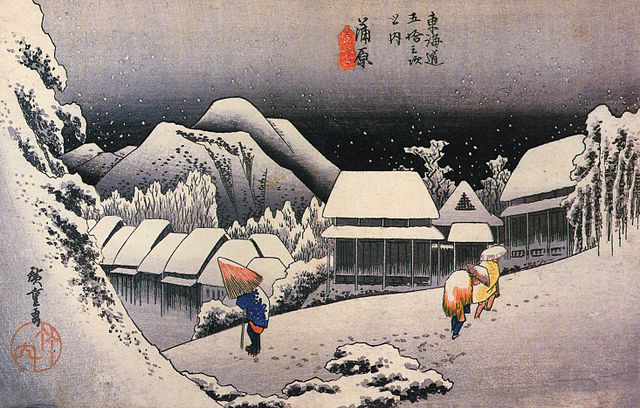
Thammasat University students who are interested in political science, history, sociology, Japan, cultural and social anthropology, cultural studies, economics, business, and related subjects may find a newly available book useful.
Modern Japan’s Place in World History: From Meiji to Reiwa is an Open Access book, available for free download at this link:
https://library.oapen.org/handle/20.500.12657/62452
The TU Library collection includes other books about different aspects of Japanese history.
The publisher’s description of the book notes:
This Open Access book includes chapters on the key turning points in modern Japanese history from the Meiji Restoration to Japan-China diplomatic normalization in the 1970s and beyond. The topics covered include the First Sino-Japanese War, the Russo-Japanese War, the First and Second World Wars, the Manchurian Crisis, the US Occupation, postwar Japan-China relations, and postwar decolonization. Readers will learn how new research by Japanese historians has led to the revision of conventional views on the turbulent history of Japan, once the enemy of the United States in the war in the Asia-Pacific and now the US’s closest ally in the region. Historical research on the modern history of Japan has been constantly updated. From the Meiji Restoration to the present day, Japan has experienced the effects of modernization and globalization. Recent historical inquiries in Japan tend to focus on the merging of modern history with global history. During the past 150 years, Japan has never been separated from events in international affairs. Scholars and general readers will appreciate the new factual details and philosophical perspectives that this volume provides drawing on the work of fourteen authors who are recognized leaders in their fields. Yuichi Hosoya is Professor of International Politics at Keio University. Masayuki Yamauchi is Specially Appointed Professor at the Musashino University Institute for Global Affairs and Professor Emeritus, the University of Tokyo.

In May Professor Hosoya posted on the Nippon Communications Foundation website and article, Japan and the Challenge of G7 Leadership: Toward an Inclusive, Rules-Based World Order:
The presidency of the Group of Seven has passed to Japan at a time when the war in Ukraine has injected new relevance into the forum while also highlighting the need for closer partnership with the Global South. How is the Japanese government responding to this challenge in the runup to the G7 Hiroshima Summit?
Japan has participated in the Group of Seven industrial democracies as the sole Asian member for almost a half century, and this year’s May 19–20 Hiroshima Summit will be the seventh G7 summit held in Japan. The presidency of the G7 has passed to Japan at a time when Russian aggression in Ukraine has brought into focus the forum’s importance—as well as its limitations—as a framework for deliberation and cooperation among the world’s leading industrial democracies. In the following we will look more closely at the G7’s role in a changing world, the challenges that lie ahead, and the contribution Japan hopes to make in 2023 and beyond. […]
Leading the Reenergized G7
The Russian invasion of Ukraine, beginning in February 2022, marked a major turning point for the G7, bringing into sharp focus the need for closer cooperation among the world’s leading industrial democracies. In 2022, Germany presided over 12 separate conferences (including virtual meetings) of the G7 foreign ministers. Even when held remotely, these discussions played a key role in coordinating a unified response with respect to aid for Ukraine and sanctions against Russia.
It was against this background that the presidency passed from Germany to Japan in January 2023.
Japan has hosted and chaired six summits previously, beginning in 1979. The first three of those events took place in Tokyo, while subsequent meetings were held in Okinawa, Hokkaidō, and Ise Shima. (Partly out of security concerns, the trend in recent years has been to hold the summit in scenic destinations away from major urban centers, so that the leaders can consult in a quiet, safe environment.) This year’s May 19–20 Hiroshima Summit will be the seventh G7 summit held under Japan’s leadership.
In Japan, the term G7 is more or less synonymous with the G7 summits. But the annual leaders’ meeting is just one of many opportunities for consultation. By the time Japan’s presidency ends on December 31, the Japanese government will have chaired a wide range of on-line and in-person deliberations, including the G7 Foreign Ministers’ Meeting in Karuizawa, Nagano Prefecture (April 16–18), and the G7 Ministers’ Meeting on Climate, Energy, and Environment in Sapporo, Hokkaidō (April 15–16). For Japan, 2023 is basically “G7 Year.”
With this in mind, Prime Minister Kishida Fumio and Foreign Minister Hayashi Yoshimasa have been at pains to clarify Japan’s position on the G7’s top agenda items while developing a broader foreign-policy doctrine. […]

Since assuming the presidency of the G7, the Japanese government has also placed strong emphasis on the need to work closely with the Global South. In his January 13 speech at Johns Hopkins, the prime minister warned, “If the Global South, holding integral places in the international arena, turn their back, we will find ourselves in the minority and unable to resolve mounting policy issues.” In keeping with this belief, the current government has been working actively to build closer cooperative ties with partners in South America, where Foreign Minister Hayashi traveled in mid-January, and Africa, which Prime Minister Kishida visited in early May. […]
Since Japan assumed the G7 presidency, one of its key diplomatic themes has been maintaining and strengthening a “free and open international order based on the rule of law.” The Free and Open Indo-Pacific doctrine, adopted by Prime Minister Abe Shinzō and continued by his successor Suga Yoshihide, emphasized Japan’s leadership role in the development of a liberal, rules-based Indo-Pacific order. Under Kishida, the government has expressed a strong resolve to go beyond such regional efforts and make a difference at the global level. The G7 Hiroshima Summit in May will be an excellent opportunity for Japan to display just this sort of leadership.
In this way, Japan has developed its own unique foreign-policy doctrine that stresses global inclusivity and diversity along with the rule of law. This is an important stance to take at a time of deepening global divisions, amid the mounting animosity and bitterness fueled by Russia’s aggression. The success of the G7 going forward may well hinge on the outcome of Japan’s efforts to advance this agenda at the G7 Hiroshima Summit and beyond.

(All images courtesy of Wikimedia Commons)
